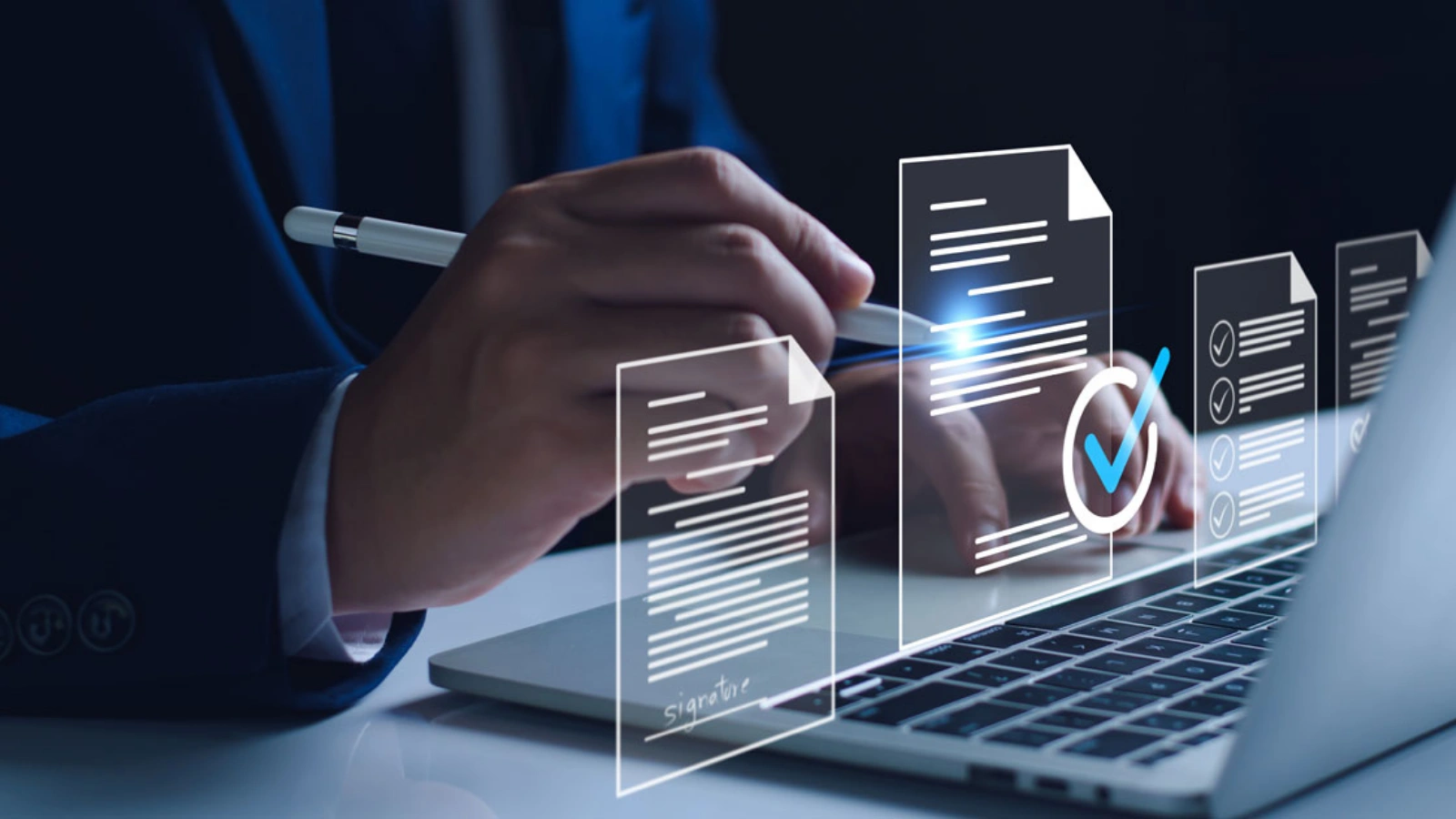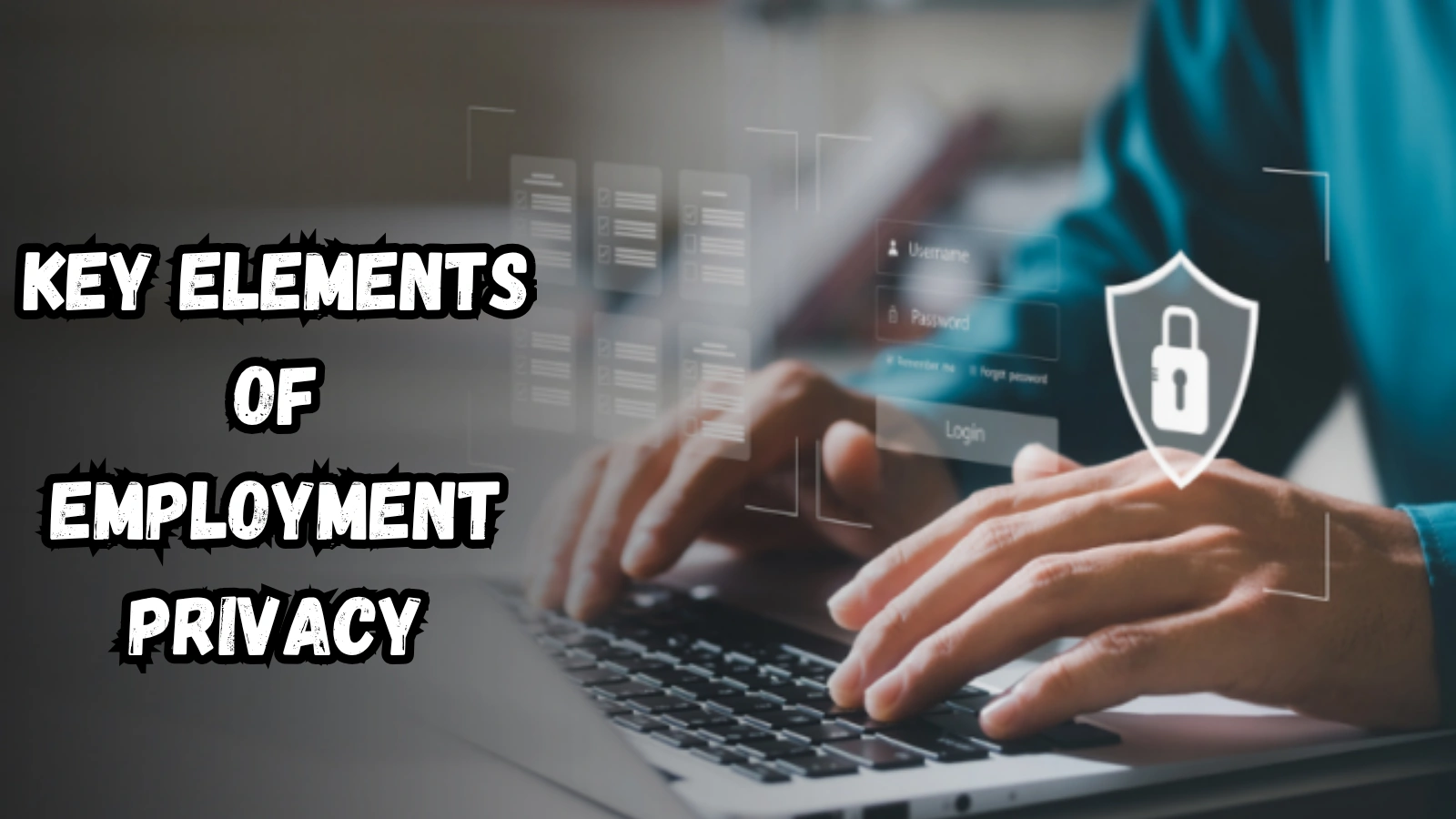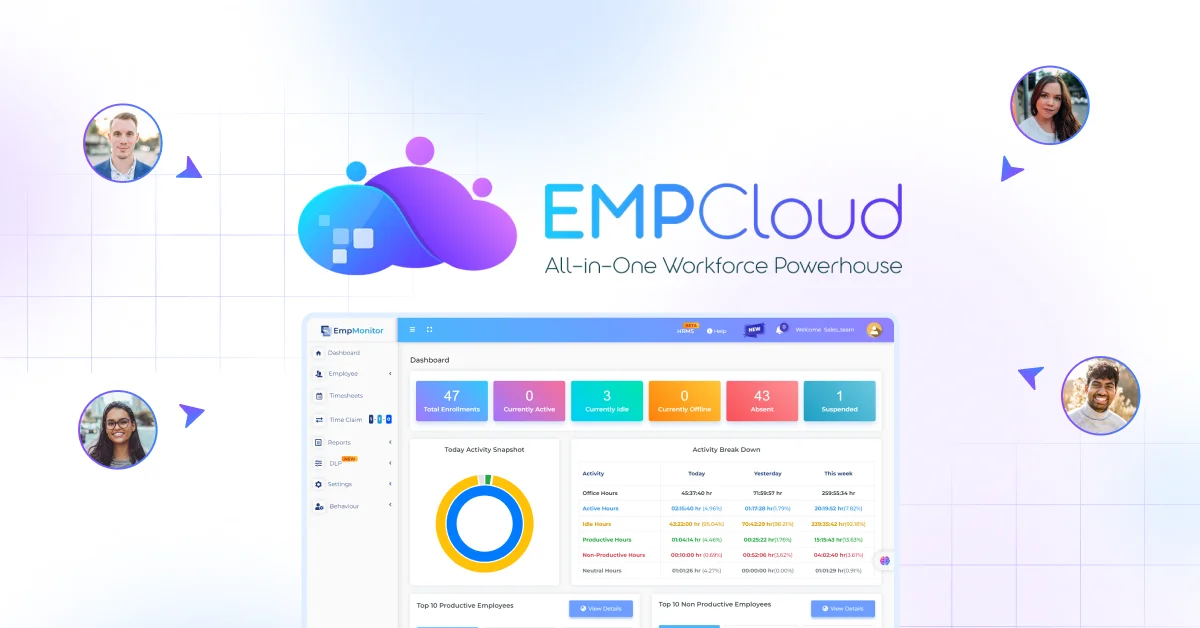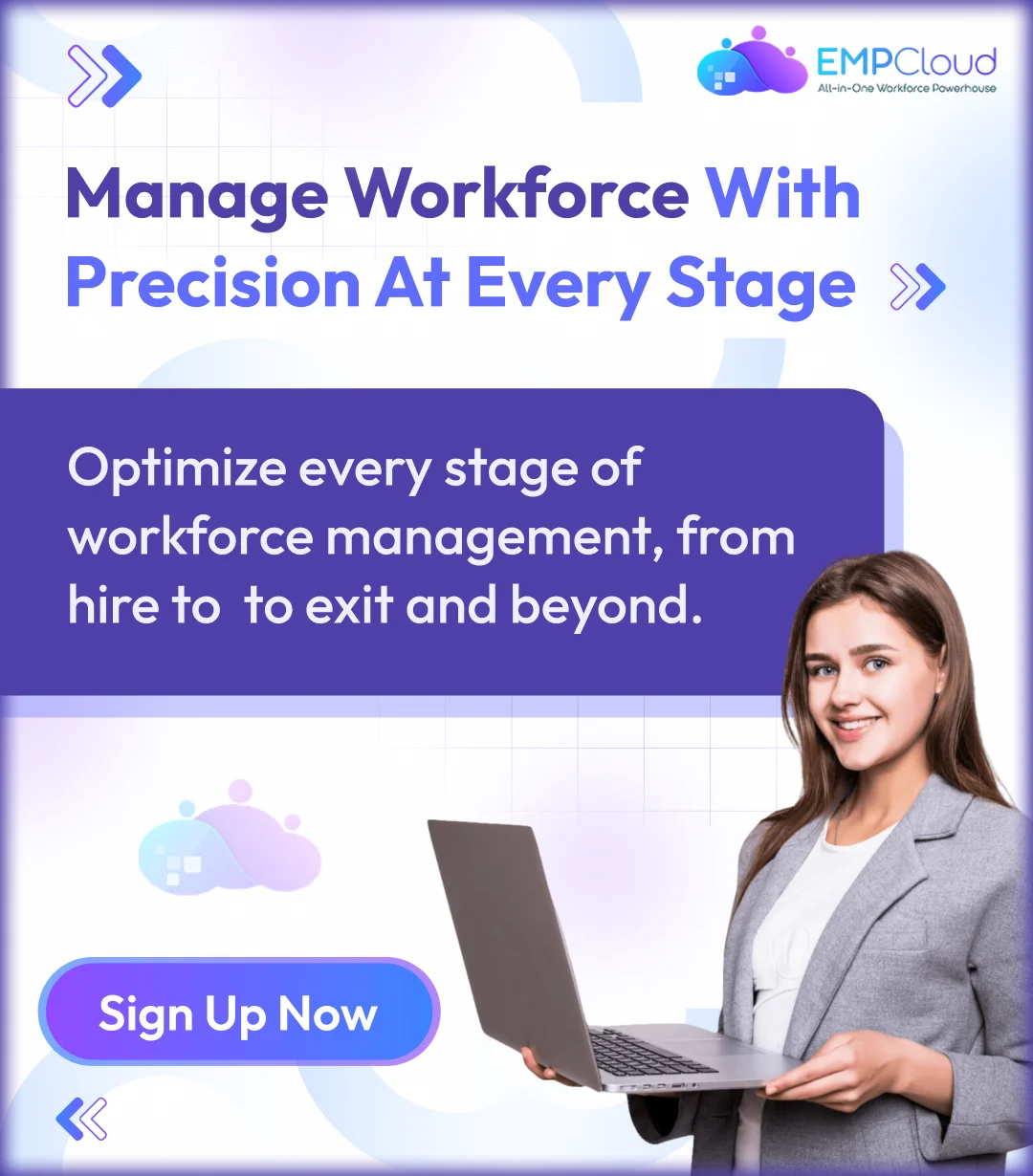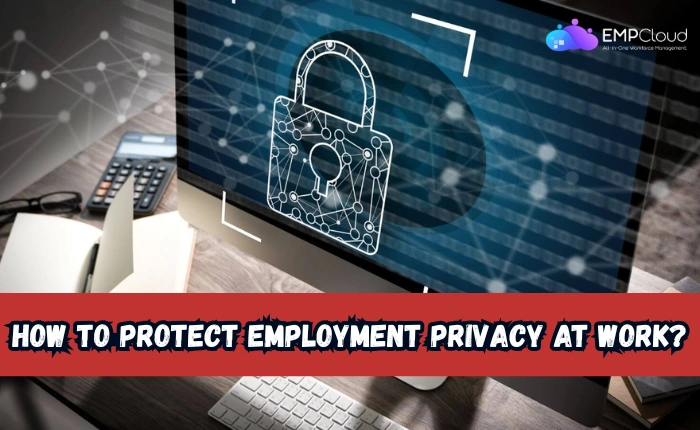
Protecting employee privacy and employment privacy is no longer optional; it’s a critical part of today’s workplace. As organizations adopt digital tools and track employee activities, maintaining personal boundaries and sensitive data has become a major concern. Employees and employers alike must navigate these challenges to create a secure and respectful work environment.
This blog covers the essentials of employment privacy laws, why they matter, common issues, and practical ways to safeguard.
In a hurry? Listen to the blog instead!
What Is Employee Privacy?
It refers to protecting personal information and the activities of employees within the workplace. This includes sensitive data such as:
- Emails and messages
- Internet browsing and device activity
- Health records and biometric data
- Social media profiles and communications
The goal of employment privacy is to balance an employer’s need for efficiency and security with the employee’s right to personal autonomy.
Modern workplaces use monitoring tools to track productivity or ensure policy compliance, but these should respect employment privacy to prevent misuse of personal data and maintain trust.
Why Employment Privacy Law Matters For Every Organization?
Employment privacy law plays a vital role in creating a fair, secure, and trustworthy work environment. It’s not just about following regulations, it’s about protecting the people who keep an organization running and fostering stronger employee engagement across all levels.
First, these laws ensure that employees’ personal details, like contact information, health records, and financial data, are handled responsibly. Mishandling or unauthorized sharing of such data can lead to serious issues like identity theft, data breaches, and reputational damage for the company.
Secondly, respecting privacy builds mutual trust. When employees know their information is safe and not misused, it strengthens their confidence in the organization. That trust naturally translates into higher engagement, motivation, and loyalty.
From a compliance perspective, adhering to employment privacy laws helps organizations avoid legal complications and hefty penalties. It reflects accountability and integrity—two qualities that define a reliable workplace.
Lastly, maintaining privacy contributes to a healthier, more productive work culture. Employees who don’t feel constantly watched or micromanaged tend to perform better and stay more focused. In short, respecting privacy isn’t just a legal obligation, it’s a smart business practice that supports long-term growth and harmony within the workplace.
Also Read:
How To Motivate Staff Through Employee Engagement Ideas?
What Are The Key Elements Of Employment Privacy Laws?
To truly understand employment privacy laws, it’s important to look at the core elements that define how organizations collect, handle, and protect employee data. These principles ensure a balance between workplace efficiency and individual privacy rights.
Data Collection and Monitoring:
Employers can collect certain employee information to maintain productivity and compliance, but it must be done within defined privacy limits. Only necessary data should be gathered, and employees should always be aware of what’s being monitored to avoid misuse or overreach.
Consent and Transparency:
Transparency is key to building trust. Employees must be clearly informed about what data is being collected, why it’s needed, and how it will be used. Getting explicit consent not only respects employee privacy but also helps reduce legal complications and miscommunication.
Security of Employee Data:
Safeguarding personal and professional data is a top priority. Employers should adopt strong encryption methods, secure storage systems, and controlled access mechanisms to prevent breaches or unauthorized exposure of sensitive information.
Limited Access and Accountability:
Employee data should only be accessible to authorized personnel. Setting up strict access permissions and maintaining audit trails ensures accountability, helping organizations build a culture of trust and responsibility.
Legal Compliance:
Every organization must stay compliant with workplace privacy regulations and related data protection laws. Regular policy updates, employee training, and compliance audits are essential to keep privacy standards up to date and avoid potential penalties.
What Are The Common Challenges In Employment Privacy?
Even with laws and workplace policies in place, many organizations face challenges when it comes to protecting employment privacy. Some of the most common issues include:
Email and Communication Monitoring:
Employers may review work emails or internal messages to ensure compliance and address potential issues. However, excessive monitoring or a lack of transparency can violate privacy, leading to employee mistrust and increased stress.
Internet Usage Tracking:
Tracking employee browsing history, app usage, or online activity can help improve productivity, but doing so without consent can violate privacy. Clear policies outlining acceptable use and monitoring practices are crucial to maintain trust and legal compliance.
Video Surveillance:
CCTV cameras are important for maintaining security in certain areas, but installing them in private spaces or over-monitoring employees can violate privacy. Organizations should limit surveillance to public areas and clearly inform staff about its purpose.
Biometric Data Collection:
Tools like fingerprint scanners and facial recognition help improve attendance accuracy and prevent buddy punching. However, it is essential to store and handle biometric data securely to prevent misuse and protect employee privacy.
Social Media Monitoring:
While reviewing public social media profiles may provide insights, using this information without consent can compromise employment privacy. Organizations should exercise caution and respect boundaries when evaluating employee online presence.
Proactively addressing these challenges through clear policies, transparent communication, and responsible technology use is essential for building trust, ensuring compliance, and fostering a respectful workplace culture.
How To Protect Employee Privacy In The Workplace?
Protecting employee privacy requires active participation from both employers and employees. It’s not just a legal responsibility, it’s also a collective effort that strengthens trust, respect, and teamwork within the organization. Here are some practical strategies to achieve it:
For Employers:
- Develop Clear and Transparent Privacy Policies:
Create detailed policies explaining what employee data is collected, how it will be used, and who has access. Transparency ensures employees understand their rights and builds trust. - Collect Only Necessary Data:
Collect only the data that is essential for business operations. Avoid gathering unnecessary personal information that could compromise employee privacy. - Implement Strong Data Security Measures:
Use encryption, secure servers, and controlled access to protect sensitive employee information from breaches or misuse. - Provide Staff Training on Privacy Practices:
Ensure HR, IT, and managerial teams are trained to handle employee data ethically and comply with privacy laws. - Regularly Review and Update Policies
As technology and workplace practices evolve, periodically review privacy policies to stay compliant with regulations and protect employee information effectively.
For Employees:
- Know Your Rights:
Familiarize yourself with employee privacy in the workplace and company policies. Understanding your rights helps you identify potential privacy violations. - Use Secure Communication Channels:
Whenever sharing sensitive information, use encrypted emails or secure platforms to maintain privacy. - Keep Personal and Work Devices Separate:
Limit personal use of company devices to reduce the risk of exposing private data and maintain control over personal information. - Report Suspected Privacy Violations:
If you notice any misuse of personal data or privacy breaches, report them to HR or the designated privacy officer promptly to ensure corrective action.
By following these strategies, both employers and employees can create a secure, transparent, and privacy-conscious workplace.
Also Read:
How To Improve Work Culture Using Smart Teamwork Tips?
How To Maintain Employment Privacy Laws During Remote Work?
Remote work brings unique challenges for protecting employee privacy. With staff using personal devices, home networks, and digital collaboration tools, the boundary between professional and personal life can easily become blurred.
Protecting sensitive information and maintaining trust requires a combination of policies, best practices, and technology solutions.
Remote Monitoring Tools:
Software can help track productivity and workflow, but monitoring should always respect employee privacy. Organizations should collect only relevant information and communicate clearly with staff about what is being monitored.
Solutions like EmpCloud provide these capabilities transparently, allowing managers to monitor attendance, productivity, and task completion without overstepping privacy boundaries.
Home Network Security:
Employees working from home must secure their networks to protect sensitive company data. Using strong passwords, firewalls, and VPNs ensures that private information remains safe and supports organizational compliance with privacy policies.
Balancing Productivity and Privacy:
Employers should focus on results rather than constant surveillance. Excessive monitoring can create stress, reduce engagement, and harm morale.
Transparent communication and trust-building practices are key to maintaining employment privacy while keeping employees productive.
By combining clear policies, secure practices, and smart technology tools like EmpCloud, organizations can make remote work efficient while protecting employee privacy. Staff benefit from defined boundaries and secure handling of their information, while employers maintain oversight and compliance in a transparent and respectful way.
How EmpCloud Help Maintain Employment Privacy?
EmpCloud offers a complete suite of workforce management tools that boost productivity while protecting employee privacy. Its features are designed to ensure transparency, strong security, and regulatory compliance, all without compromising trust.
EmpMonitor:
Provides real-time insights into employee productivity and workflow while ensuring monitoring is ethical and respects privacy. Managers can identify areas for improvement without collecting unnecessary personal information.
Emp Biometrics:
Uses advanced facial recognition technology to track attendance accurately, prevent buddy punching, and securely store biometric data, ensuring sensitive employee information is protected.
HRMS (Human Resource Management System):
Streamlines HR operations, including leave management, attendance tracking, and policy documentation. Ensures all processes comply with workplace privacy law, keeping employee data safe and transparent.
Payroll Management:
Automates payroll processes while protecting financial and personal information. Accurate and secure payroll ensures sensitive data is handled responsibly and in compliance with privacy regulations.
Project & Productivity Tracking:
Enables managers to monitor task progress, team performance, and project deadlines transparently. The system provides actionable insights without infringing on individual privacy.
Data Loss Prevention & Policy Compliance:
Protects sensitive employee information from unauthorized access or leaks. Ensures organizational policies comply with privacy regulations, making employment privacy a fundamental part of daily workforce operations.
Benefits of Using EmpCloud
- Secure & Reliable: EmpCloud protects sensitive employee data with advanced security measures, ensuring that personal, attendance, and financial information remains safe from unauthorized access.
- Intuitive Interface: The platform is user-friendly, allowing employees and managers to navigate tools easily with minimal training, which ensures smooth adoption and efficient operations.
- Versatile & Customizable: EmpCloud’s features can be customized to suit the unique needs of any organization. It enables flexible management of attendance, payroll, HR tasks, and productivity tracking while ensuring employee privacy is respected.
- Enhanced Transparency: By providing clear workflows and reporting, EmpCloud fosters accountability without infringing on personal privacy, building trust between employees and management.
Integrating EmpCloud helps organizations create a secure, transparent, and efficient workplace that prioritizes employee privacy, streamlines processes, and improves overall workforce productivity.
What Does The Future Hold For Employment Privacy?
As workplaces evolve, employee privacy will face new challenges and opportunities driven by technological advancement, regulations, and shifting expectations. Understanding these trends is essential for organizations that want to protect sensitive information while maintaining productivity.
Increased Use of AI Monitoring Tools:
Artificial intelligence is becoming more prevalent in tracking employee performance, workflow, and engagement. While AI can improve efficiency, organizations must implement it responsibly to respect privacy, avoid over-surveillance, and ensure data is used ethically.
Widespread Adoption of Biometric Systems:
Biometric systems, such as facial recognition and fingerprint scanning, are increasingly used for attendance and security. Future adoption will depend on secure data storage, compliance with privacy standards, and transparent communication with employees about how data is used.
Global Privacy Regulations and Compliance:
As organizations operate internationally, compliance with laws like GDPR and other regional privacy regulations will become more critical. Companies must establish comprehensive policies to manage employee data ethically, protect privacy, and avoid legal penalties.
Growing Employee Advocacy for Transparency and Privacy:
Employees are increasingly aware of their privacy rights and expect transparency in how their data is collected, monitored, and used.
Organizations that prioritize employment privacy will build trust, improve engagement, and reduce the risk of disputes.
By adopting advanced solutions and workforce management platforms, companies can stay ahead of these trends. Integrating technology responsibly ensures both compliance and employee trust, creating a workplace that values privacy while fostering efficiency and innovation.
Conclusion
Protecting employment privacy is essential for trust, engagement, and productivity. Companies must strike a balance between needs and ethical responsibilities, while employees should understand their rights and advocate for privacy protections.
Platforms like EmpCloud provide practical solutions for secure workforce management, combining productivity tools with strong privacy safeguards. By implementing clear policies and technology responsibly, organizations can create a workplace that respects employee privacy, builds trust, and supports long-term performance.
FAQs
1. Can employers monitor personal devices used for work purposes?
Employers can monitor personal devices used for work, but only for job-related activities and within the boundaries set by company privacy policies.
2. What steps can employees take if they suspect their privacy is being violated?
Employees should document any concerns, report them to HR, and review company privacy policies to safeguard their personal information and privacy at work.
3. How does GDPR or other international privacy laws affect employment privacy in global companies?
GDPR and similar regulations require companies to handle employee data responsibly, secure it, and obtain consent for monitoring, ensuring compliance with privacy standards.
4. How can companies balance employee monitoring with privacy?
Organizations should clearly define what data is being monitored, limit tracking to work-related activities, and communicate policies transparently. Using monitoring tools responsibly helps maintain productivity without compromising employee privacy.
5. What role do employees play in maintaining employment privacy?
Employees can protect their privacy by following company policies, using secure communication channels, separating personal and work devices, and reporting any privacy concerns promptly. Active participation helps maintain a safe workplace.

